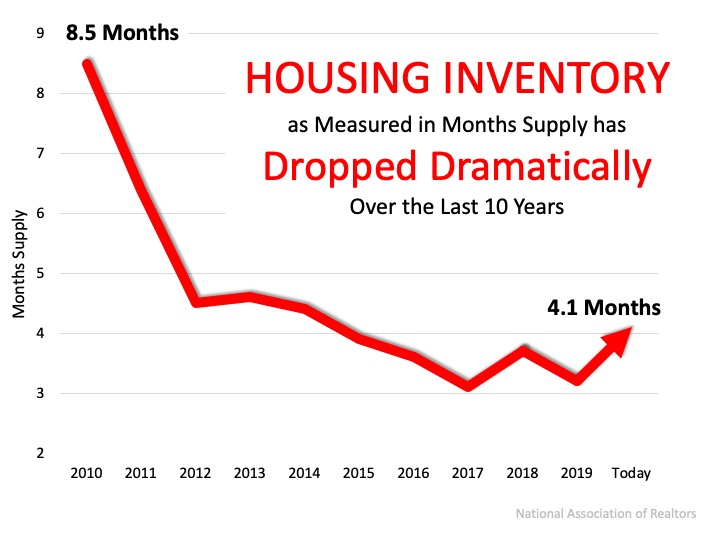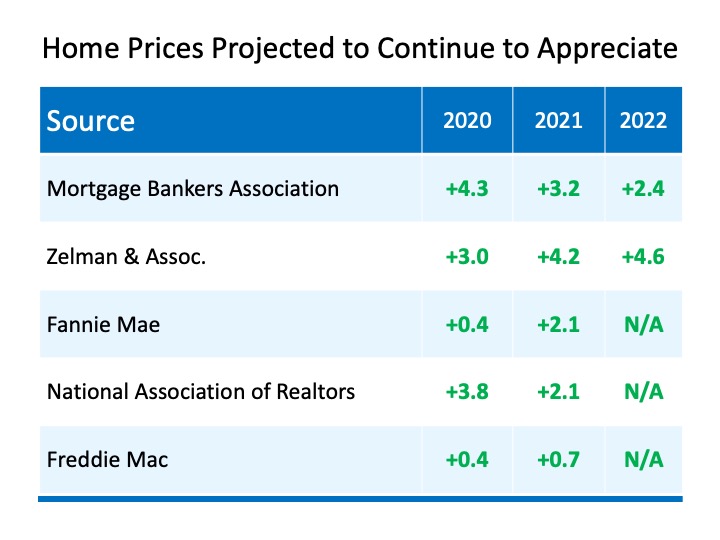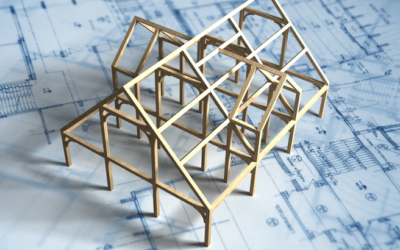
“Making our way through the month of June and entering the second half of the year, we face an undersupply of homes on the market.”
Making our way through the month of June and entering the second half of the year, we face an undersupply of homes on the market. Keep in mind, this undersupply is going to vary by location and by price point. According to the National Association of Realtors (NAR), across the country, we currently have a 4.1 months supply of homes on the market. Historically, 6 months of supply is considered a balanced market. Anything over 6 months is a buyer’s market, meaning prices will depreciate. Anything below 6 months is a seller’s market, where prices appreciate. The graph below shows inventory across the country since 2010 in months supply of homes for sale. Robert Dietz, Chief Economist for the National Home Builders Association (NAHB) says:
Robert Dietz, Chief Economist for the National Home Builders Association (NAHB) says:
“As the economy begins a recovery later in 2020, we expect housing to play a leading role. Housing enters this recession underbuilt, not overbuilt. Estimates vary, but based on demographics and current vacancy rates, the U.S. may have a housing deficit of up to one million units.”
Given the undersupply of homes on the market today, there is upward pressure on prices. Looking at simple economics, when there is less of an item for sale and the demand is high, consumers are willing to pay more for that item. The undersupply is also prompting bidding wars, which can drive price points higher in the home sale process. According to a recent MarketWatch article:
“As buyers return to the market as the country rebounds from the pandemic, a limited inventory of homes for sale could fuel bidding wars and push prices higher.”
In addition, experts forecasting home prices have updated their projections given the impact of the pandemic. The major institutions expect home prices to appreciate through 2022. The chart below, updated as of earlier this week, notes these forecasts. As the year progresses, we may see these projections revised in a continued upward trend, given the lack of homes on the market. This could drive home prices even higher.
Bottom Line
Many may think home prices will depreciate due to the economic slowdown from the coronavirus, but experts disagree. As we approach the second half of this year, we may actually see home prices rise even higher given the lack of homes for sale.
To view original article, visit Keeping Current Matters.
4 Ways to Make an Offer That Stands Out This Spring
If you’re serious about landing a home you’ll love, you need a smart strategy that includes a working with a great agent.
House Hunting Just Got Easier – Here’s Why
Over the past few months, the number of new listings, or homes that have recently been put on the market for sale, has been steadily rising.
Why You Don’t Want To Skip Your Home Inspection
Skipping a home inspection is a risk that could cost you a lot more than just time.
The #1 Thing Sellers Need To Know About Their Asking Price
A great agent will use real data and market trends to make sure your house is priced based on what your specific home is valued at today
The Truth About Newly Built Homes and Today’s Market
Like anything else in real estate, the level of supply and demand will vary by market; some markets have more, some less.
Paused Your Moving Plans? Here’s Why It Might Be Time To Hit Play Again
With inventory still almost 23% below the pre-pandemic norm, well-priced homes are selling.






